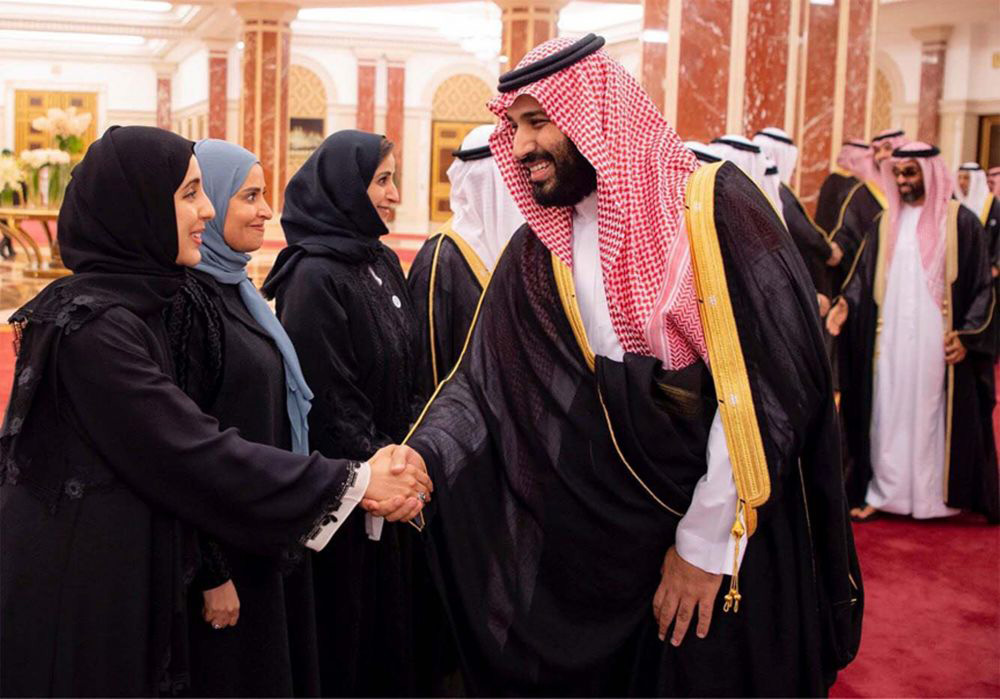
It’s been an incredibly busy year for Saudi’s Crown Prince Mohammed Bin Salman as he leads his Vision 2030 plan for the kingdom. As part of his progressive plan and vision for the future of Saudi Arabia, he puts women at the forefront of change and has openly spoken about women’s rights.
Earlier this year, the young leader toured America and offered up an extensive insight in interviews with CBS, Bloomberg and other international platforms to let the world know what he has in mind for the future of women in the kingdom and these are just some of the ways he is championing women’s rights.
On Supporting Women in the Workforce
“I just want to remind the world that American women had to wait long to get their right to vote. So we need time. We have taken many steps. In King Salman’s time, women were able to vote for the first time and 20 women won in these elections. Women can now work in any sector. In business and commerce, as a lawyer, in the political field and in all sectors. Women can carry out any jobs they want. What is left is that we support women for the future and I don’t think there are obstacles we can’t overcome. We look at citizens in general and women are half of this society and we want it to be a productive half.”
On Enforcing Equal Rights
“I support Saudi Arabia, and half of Saudi Arabia is women. So I support women. In our religion, there is no difference between men and women. There are duties to men and duties to women. There are different forms of equality. In the Saudi government, women are paid exactly like men. We have regulations like this that are going into the private sector. We don’t want divided treatment for different people.”
On Adjusting Guardianship Laws
“Before 1979 there were societal guardianship customs but no guardianship laws in Saudi Arabia. It doesn’t go back to the time of the Prophet Muhammad. In the 1960’s women didn’t travel with male guardians. But it happens now, and we want to move on it and figure out a way to treat this that doesn’t harm families and doesn’t harm the culture.”

On Modest Fashion for Women
“The laws are very clear and stipulated in the laws of Sharia: that women wear decent, respectful clothing, like men. This, however, does not particularly specify a black abaya or a black head cover. The decision is entirely left for women to decide what type of decent and respectful attire she chooses to wear.”
On Combatting Gender Bias and Segregation
“We have extremists who forbid mixing between the two sexes and are unable to differentiate between a man and a woman alone together and their being together in a work place. Many of those ideas contradict the way of life during the time of the Prophet Muhammad.” Speaking with Time Magazine, he continued, “So if someone comes and says “women cannot participate in sport,” we tell them how about the Prophet raced with his wife. If someone comes and say “women cannot do business,” the wife of the Prophet, she is a businesswoman and he used to work for her as a Prophet. So also the Prophet’s practice, it is on our side. So I believe we can do it very fast.”
On The Future of Women’s Rights
“We are working on an initiative, which we will launch in the near future, to introduce regulations ensuring equal pay for men and women. Today, Saudi women still have not received their full rights. There are rights stipulated in Islam that they still don’t have. We have come a very long way and have a short way to go.”

















